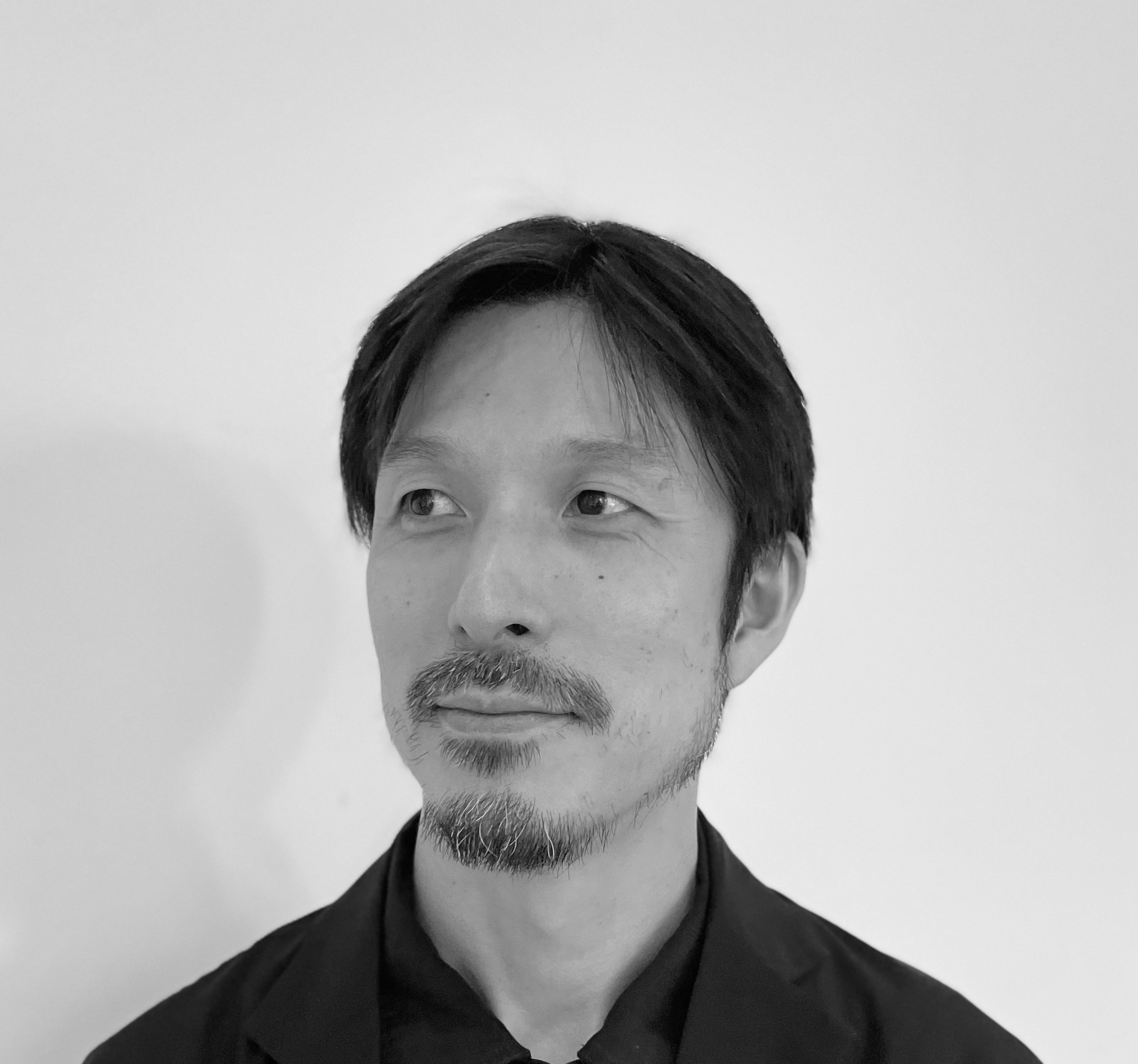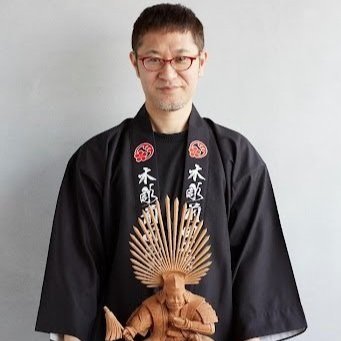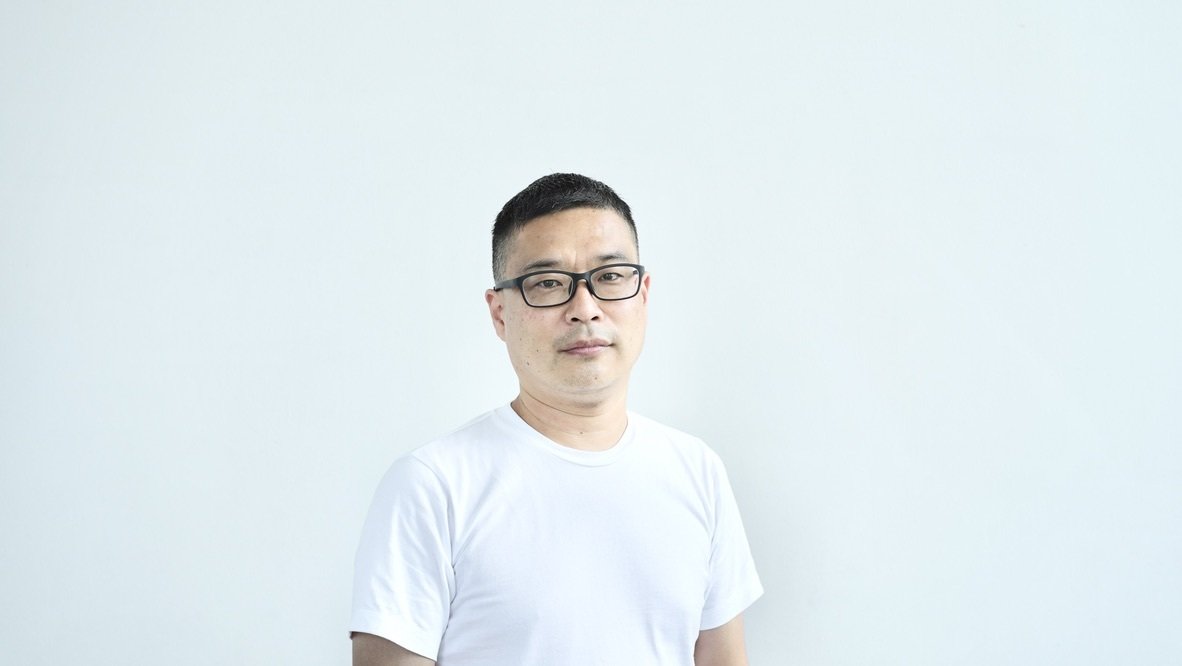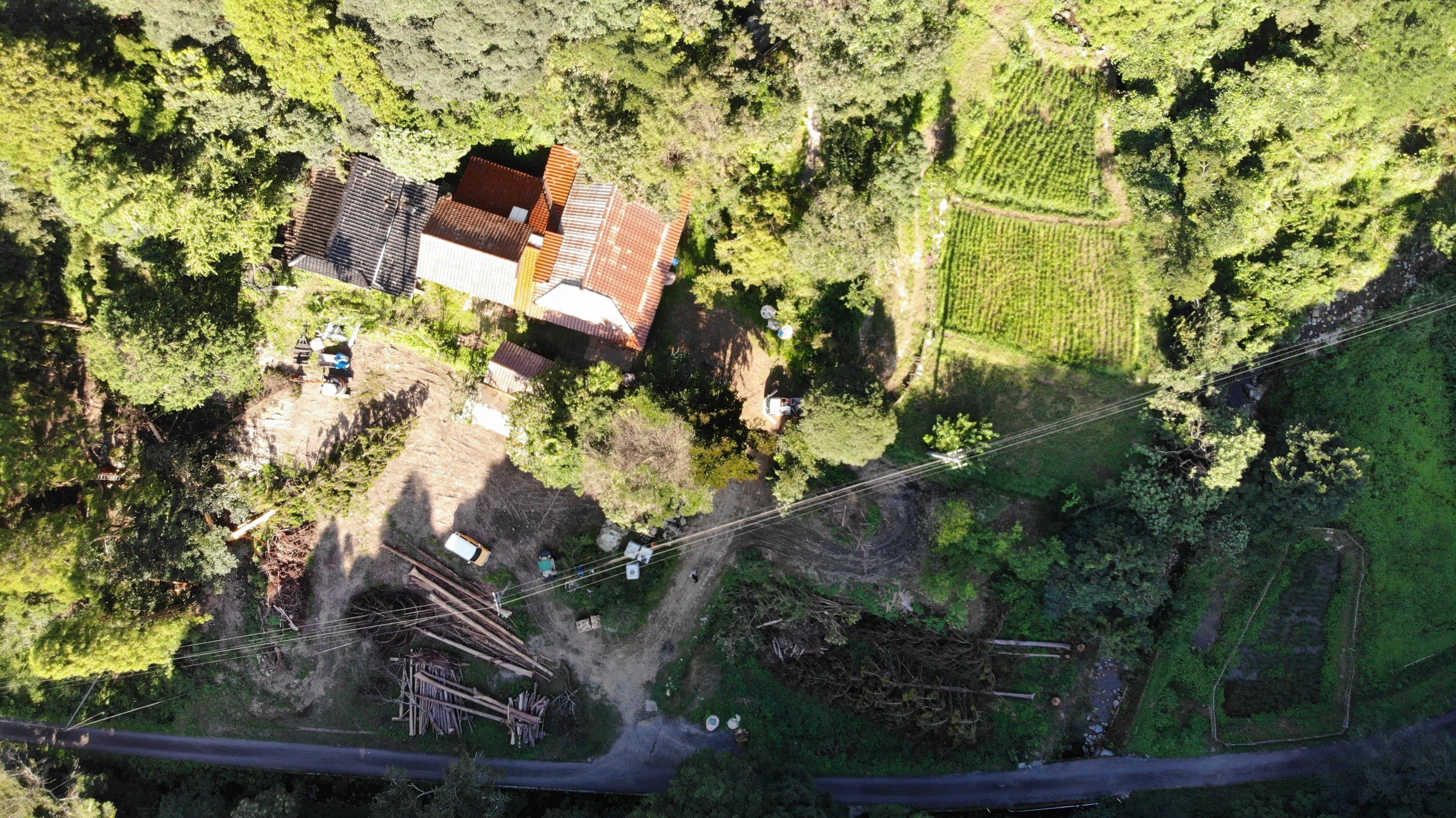Lectures
For our cultural programme, we have invited exquisite guests with different knowledge and background. Lectures will be given daily by artisans and designers who engage in exciting international collaborations between Japan and the Netherlands and initiators of cultural projects, and there will also be speakers from Japan who will talk about crafmanship and community building.
Free admission and no pre-booking required to the lecture with a valid entrance ticket to MONO JAPAN 2023.
Schedule
September 15th
-
Time: 12:15 - 13:15
By Yohei Oue (Oue co.) and the Dutch designer Mae Engelgeer -
Time: 15:00 - 16:00
By Ryoichi Satake, the manager of Time & Style Amsterdam
-
Time: 16:30-17:30
By Vincent Schipper (Studio the Future)
September 16th
-
Time: 12:30-13:30
By the Dutch designer Carole Baijings and the Japanese Master craftsman Akihiko Maeda from Maeda Woodworks
September 17th
-
Time: 13:00 - 14:00
By Masaru Ito (CEO of SHIBAURA HOUSE) and Hiroaki Koizumi (REAL KOBE ESTATE)
-
Time: 14:15-15:15
By Shigechika Hirashita, the founder of the Design Office SUKIMONO
-
Time: 15:30-16:30
By Yasuhiro Horiuchi (Representative Director, Creative director and designer of Trunk Design) and Shinya Kobayashi (Director of the MUJUN)
-
Time: 16:45-17:45
By Shinya Kobayashi (Director of the MUJUN) and Emiko Chujo (Director of MONO JAPAN)
Lecture 01.
Powerful Washi
Presentation of MONO MAKERS PROGRAM
Date and time: Friday 15 September 12:15 - 13:15
Dutch designer Mae Engelgeer and the Japanese washi distributor Oue co. have started a new project together after they met on MONO MAKERS MEET, an online platform set up by MONO JAPAN and NN Life Insurance Company in Japan. Their goal is to create an upcycled fiber that takes advantage of washi’s ability to mix various materials which can be dyed, lacquered, and printed. They will work together on a new color range and test possible ways of folding, sewing and upholstering with strong washi. The outcome will be presented in a range of products that combine this special material, craftsmanship and heritage with a designer signature.
As the winner of MONO MAKERS PROGRAM 2023, they are receiving hands-on support for their collaboration during one year. During the lecture they will share with you their motivation behind the collaboration and their process so far.
About Oue co.
Oue co. company was founded in 1948, and has been dealing with Japanese Washi paper for over 70 years through the fourth generation. The company started as a peddler selling hand-made Japanese paper made from Echizen, Fukui Prefecture, which the grandfather of Yohei Oue had a connection with. Since then they have continued to produce washi paper with various paper manufacturers throughout Japan.
Speakers
Yohei Oue
After graduating from university, Yohei Oue worked for five years in the sales for printed materials and corporate sales promotion in a big printing & advertising company in Japan. After that, Oue joined an Indian consulting firm in New Delhi, where he worked for 2 years as a sales representative to support Asian companies investing in India, before joining Ooue paper. Oue is currently exploring new possibilities for Japanese washi paper.
Mae Engelgeer
Textile design has always been at the heart of Dutch designer Mae Engelgeer’s work, from her high school days to her studies at the Amsterdam Fashion Institute and Sandberg Instituut. Since opening her own studio in 2013, she has nurtured her curiosity for the craft, experimenting within the existing boundaries of textile production to elevate old techniques to a modern stage.
Mae Engelgeer’s work embraces subtle colour palettes, patterns and linear elements. Complex compositions merge with perfection to establish harmony. Creative explorations into the contrasting of materials and textures result in works that luxurious in their tactility and dimensionality.
In addition to developing her own collections, Mae Engelgeer collaborates with brands around the world on projects ranging from textile products and furniture design to material explorations and art direction to large-scale installations and public artworks.
Lecture 02.
Tradition for contemporary life
Date and time: Friday 15 September 15:00 - 16:00
Time & Style is a Japanese company that designs and produces furniture, lighting, tableware, towels, and other products for daily life with Japanese craftsmanship. They gained popularity in the Netherlands when they exhibited at the first MONO JAPAN Fair in 2016, and opened their first shop in Amsterdam the following year. With their beautifully crafted furniture made of Japanese materials that fits the European lifestyle, they are gradually expanding their fan base in Europe.
Based on the design concept of evolving traditional Japanese techniques for modern life, they pursue producing products that can be used for a long time, respecting the texture of the materials they are made of. In Japan, there are still many traditional techniques and skills that have been passed down from generation to generation. During the lecture you will hear an exclusive story about how their furniture collections are made to perfection by different artisans and how this brand works together with them.
Speaker
Ryoichi Satake
Time & Style Amsterdam manager
Joined Time & Style in 2003. He became the manager of the shop in Amsterdam in 2017 and has been providing Time & Style original products with Japanese hospitality
Lecture 03.
Craft and the Future: Redefining tradition
Date and time: Friday 15 September 16:30 - 17:30
The craft sector grapples with a host of challenges that impact the entire ecosystem. While certain companies and makers sustain themselves or thrive, the overarching system faces setbacks. Notably, by a decline in both humans and material resources.
Over the past decade, efforts to infuse ‘design product’ sensibilities into traditional crafts have borne innovative results, particularly within specific sectors. However, tackling more extensive systemic issues proves to be a greater challenge.
A comprehensive approach is needed. Starting with a revision of the prevailing definition of ‘craft’.
speaker
Vincent Schipper (Studio The Future)
Studio The Future (STF) has been actively engaged in Japan for the past decade, serving as designers, curators, publishers, organisers, coordinators of artist residencies, artists, and cultural / arts advisors to diverse governments and institutions. While operating across varied domains, STF’s origins are deeply entwined with multiple craft industries, particularly paper-making.
STF has fostered artistic partnerships with craftsmen throughout Japan, both as originators and collaborators.
Lecture 04.
Japan Craft meets Dutch Design
Date and time: Saturday 16 September 12:30 - 13:30
Dutch designer Carole Baijings and the Japanese Master craftsman Akihiko Maeda from Maeda Woodworks are taking up the challenge of developing contemporary products that combine traditional Japanese techniques with Dutch design through their participation in the European expansion support programme 'Craft Runways 2022'. In this lecture, they will discuss the ‘Plated by Carole Beijings for Maeda Woodworks’, a series of wooden plates that redefine the art of wood carving and incorporate it into tableware, and the ‘Cabinet of Curiosities’, a series of wooden art pieces inspired by Siebold and Keiga Kawahara.
Speakers
Carole Baijings
Studio Co-Founder of the Amsterdam-based studio Scholten & Baijings until 2019, Carole Baijings is widely regarded as one of the most exciting, innovative and dynamic industrial designers in Europe. A self-confessed perfectionist, her work – which includes ceramics, glassware, textiles, furniture and electronics – is distinguished by a carefully considered use of colour, pattern and graphic elements. Her eye for detail is well-known. This has resulted in numerous partnerships with brands such as Samsung, IKEA, MINI, HAY, Herman Miller, Karimoku New Standard, 1616 / arita japan, 2016/ Arita and Maharam among others.
Always looking to challenge and rethink the way people interact and live with design, Baijings’ work has been featured in prestigious institutions such as the Victoria & Albert Museum, the Cooper Hewitt Smithsonian Design Museum, the Art Institute of Chicago and the Rijksmuseum.
Akihiko Maeda
Born in Osaka, Akihiko Maeda was inspired to become a danjiri craftsman by the region’s danjiri festivals which feature these elaborate wooden carvings.
Maeda honed his craft for a decade before becoming an independent craftsman in 2008. While danjiri carvings are his main focus, Maeda also works in a variety of styles to create a diverse offering of wood carvings.
The beauty and charm of these wood carvings are in the intricate detail, but in recent years the work of danjiri carving has sharply decreased. To keep the traditional craft of danjiri woodcarving alive, Maeda Woodworks intends to spread Japanese woodcarving techniques outside of Japan and around the world.
The company motto is that in woodcarving the possibilities are limitless. Maeda Woodworks believes that anything made of wood has the potential to be carved into works of art — it is the job of the sculptor to find the new value inside of the wood.
Maeda creates unique products by appreciating, valuing, maximising the potential of wood before adding the warmth of hand craftsmanship. He creates products that combine the traditional techniques of each danjiri craftsman who came before with his own unique style and technique.
Yumiko Hoya
CSV Initiatives Team/Family Business Innovation Lab committee at NN Life Insurance Company, Ltd.
Lecture 05.
What Lies Beneath MONO
Date and time: Sunday 17 September 13:00 - 14:00
Have you ever considered what lies beneath the MONO (objects) in front of your eyes? As MONO JAPAN focuses this year on the theme of “Community”, SHIBAURA HOUSE will provide a meta-perspective on the objects presented at the event. More specifically, the discussion dives into the current social structure in Japan, analyzes some case studies in regard to the need of community, and tries to explore the future possibilities together with the Dutch perspective.
About SHIBAURA HOUSE
SHIBAURA HOUSE is a company headquarters combined with a community space in Shibaura, Minato-ku, Tokyo. The company was founded in 1952 (and was formerly called Kohkoku Seihan Inc.), but in 2011, it was turned into SHIBAURA HOUSE when the headquarters were rebuilt. As the name suggests, the idea was to build a ‘house’ that is open for people.
SHIBAURA HOUSE operates as an open space where local children, office workers working in the area, and overseas visitors can all gather in one place. From cooking and English conversation classes to lectures with guests from both Japan and abroad, they have been organizing over 100 cultural programs every year. What’s more, the ground floor is open for anyone to come in, just like a public park. As an initiative of one company trying to build relations within a local community, SHIBAURA HOUSE is a kind of social experiment that attracts visitors from both within Japan and abroad.
Speakers
Masaru Ito
As the CEO of SHIBAURA HOUSE, a community space in Tokyo, Masaru Ito has been organizing numerous cultural projects as a close partner of the Embassy of the Netherlands in Japan and the City of Amsterdam for nearly a decade.
Hiroaki Koizumi
Hiroaki Koizumi runs REAL KOBE ESTATE, a farmers market as well as media business, with a focus on the local economy. One of his projects, ROKKONOMAD, takes part in the local network of SHIBAURA HOUSE called nl/local.
Lecture 06.
Growing Community - The Future Envisioned by SUKIMONO
Date and time: Sunday 17 September 14:15 - 15:15
Japan boasts an abundance of craftsmanship, but with the declining birthrate and ageing population, there is a shortage of people who aspire to become craftspeople. Surveys have shown many young people hold a negative image of craftsmen, imagining harsh working conditions. Sukimono is an architectural firm and furniture manufacturer, a company that understands the appeal and challenges of manufacturing.
Sukimono has developed in-house initiatives that improve workstyles and proposes solutions to local communities in a truly organic manner. These initiatives have been a huge success, with young people relocating to work at SUKIMONO from outside regions and cities to Gotsu in beautiful Shimane Prefecture. The local community has been revitalised by the influx of new people and ideas, transforming itself into a new community for a new era.
At MONO JAPAN, Shigechika Hirashita, the representative of SUKIMONO, will discuss SUKIMONO's circular manufacturing and its commitment to reusing old furniture and materials. He will also lay out SUKIMONO’s vision for the future as well as opportunities for exchange programs that artists and craftspeople can participate from the Netherlands.
Speakers
Shigechika Hirashita
Born in Gotsu City, Shimane Prefecture, Shigechika Hirashita established Design Office SUKIMONO in 2012 which began as an architectural design business. In 2014, he set up a furniture factory and started producing his own furniture as well as planning for the production of textile products. In 2016, Sukimono acquired a shachihoko factory. Shachichoko are the traditional decorative ornaments that adorn the edge of tiled roofs in Japan. Hirashita expanded its production base and incorporated it as Sukimono Co., Ltd. in 2020.
In 2022, Sukimono acquired a ryokan (traditional inn) in the hot spring town of Arifuku Onsen (a village with a population of just 80 people) marking Sukimono’s first foray into the accommodation business. To date, Hirashita has worked on a number of architectural spaces, townscape restorations, and furniture and textile products.
Lecture 07.
LIVE DESIGN School - New Platform for Community-building
Date and time: Sunday 17 September 15:30 - 16:30
‘We will talk and learn about the future of the region and the design of the future. Such a school will begin. Participating will be top runner designers who represent Japan living in the region. Industry, economy, welfare, education, depopulation, various issues The members have been working steadily to improve the quality of life and society while facing challenges in various topics such as industry, economy, welfare, education, depopulation. Something that visualises the essence of things and delivers it to where it is really needed. At a time when values have begun to change dramatically, such a broad sense of design is required in the region.”
This is the preface of the online learning place “LIVE DESIGN School” which Mr. Horiuchi, Mr. Kobayashi and several other designers started in 2023.
As designers, both of them will work on product design in various production areas all over Japan. Mr. Horiuchi produces products born from Hyogo's local industry and also manages the store. Mr. Kobayashi revitalises the cutlery industry in his hometown of Ono City, Hyogo Prefecture, and creates a place in his new home, Shimane. The LIVE DESIGN School, which was born by volunteers including those two, has been attracting a lot of attention on the Internet since the first announcement, and a large number of students of various ages applied for the course from all over the country.
The centre of craft making is not the product, but the community that surrounds it and the place that forms it. Especially in rural areas, there are issues such as depopulation, and the power of new designs is required there. With LIVE DESIGN School as a learning community, new exchanges are starting all over the country. Mr. Horiuchi and Mr. Kobayashi will be invited to give lectures on the realities and challenges of the regions responsible for craft making in Japan, as well as the goals of the LIVE DESIGN School.
Speakers
Yasuhiro Horiuchi
Representative Director, Creative director and designer of Trunk Design
Yasuhito Horiuchi was born in Hyogo Prefecture in 1981. In 2009, he opened an office space and shop named Trunk Design in Kobe. Horiuchi has worked extensively on direction and design for the production and branding of local industries and traditional crafts. In 2011, he launched 'Hyogo Craft' to introduce Hyogo's craftsmanship and has developed nine brands of apparel, incense, stationery, tableware and other products.
The company currently provides support for the production, branding, domestic and international sales channel development and local branding of local industries and traditional crafts not only in Hyogo but also throughout Japan.
In 2020, the online market craft 'LOCAL CRAFT MARKET' will be launched to connect makers and users in a new form of distribution that has been halted due to the spread of the new coronavirus. In 2021, he launched a tourism project 'LOCAL CRAFT JAPAN' to provide tours to craft production areas throughout Japan. He has won various design awards.
Shinya Kobayashi
Director of the MUJUN
Shinya Kobayashi was born in 1987 in Ono City in Hyogo Prefecture. He graduated from Osaka University of Arts (Product Design) in 2010, opening a shop called Tokitsukaze in Yunotsu Onsen, located in Shimane prefecture. Yunotsu Onsen is a UNESCO World Heritage Site. Utilising that concept of Satoyama, Tokitsukaze combines a gallery, product sales, cafes, snacks, and a sauna. In 2011, Kobayashi established Coelacanth Shokudo, a company focused on innovation design. The company launched the original product brand “MUJUN” in Amsterdam in 2016, which was followed by the MUJUN Workshop in July 2018 with the aim of nurturing successors for local cutlery craftsmen. MUJUN Workshop is a new, sustainable system for finding and nurturing successors. In April 2020, MUJUN founded a village called MUJUN Planet in Yunotsu. The village is meant to cultivate the image of true craftspeople and increase the self-sufficiency rate of manufacturing. It is a place where anyone can become a craftsman. In December of 2021, Kobayashi’s team established Satoyama Installation LLC in Yunotsu.
Lecture 08.
New residency program “AKIYA AIR” powered by MUJUN & MONO JAPAN
Date and time: Sunday 17 Septemebr 16:45-17:45
Banshu Hamono by MUJUN is a brand of cutlery bundling the best products made by cutlery makers and craftspeople under a single brand. The brainchild of Shinya Kobayashi, the Banshu Hamono brand seeks to overcome the unique challenges of one of the leading cutlery production areas in Japan, displaying the appearance of Banshu cutlery products and eliminating the boundaries between small manufacturers.
During the pandemic, Kobayashi acquired a mountain in Shimane Prefecture, and with it a town called Yunotsu, which used to prosper as a hot spring resort. Yunotsu is struggling with depopulation and the number of vacant houses is increasing. Kobayashi was inspired by traditional Japanese "Satoyama life" through the development of workshops and lumber mills, encountering a richness of worldview and creativity that cannot be obtained in the city.
At MONO JAPAN, we believe that connecting Dutch society, especially creators, with Japan's traditional craftsmanship culture will create unique possibilities for both sides. In the Netherlands, design permeates every corner of life and society. People work creatively on issues, combining sophisticated design with efficient manufacturing. However, that streamlining of manufacturing has led people away from the joy of handicrafts, while Japan has been able to maintain a variety and richness of traditional craftsmanship and skills to handle natural materials.
MONO JAPAN representative Chujo was impressed by Kobayashi's activities in Japan. By the appeal of the craftsmanship rooted in the region of production which he introduced. It was decided to jointly launch a residency program at Kobayashi's old folk house in Yunotsu. From 2024, “AKIYA AIR” will host selected creators from the Netherlands in Yunotsu twice a year.
speakers
Shinya Kobayashi
Director of the MUJUN
Shinya Kobayashi was born in 1987 in Ono City in Hyogo Prefecture. He graduated from Osaka University of Arts (Product Design) in 2010, opening a shop called Tokitsukaze in Yunotsu Onsen, located in Shimane prefecture. Yunotsu Onsen is a UNESCO World Heritage Site. Utilising that concept of Satoyama, Tokitsukaze combines a gallery, product sales, cafes, snacks, and a sauna. In 2011, Kobayashi established Coelacanth Shokudo, a company focused on innovation design. The company launched the original product brand “MUJUN” in Amsterdam in 2016, which was followed by the MUJUN Workshop in July 2018 with the aim of nurturing successors for local cutlery craftsmen. MUJUN Workshop is a new, sustainable system for finding and nurturing successors. In April 2020, MUJUN founded a village called MUJUN Planet in Yunotsu. The village is meant to cultivate the image of true craftspeople and increase the self-sufficiency rate of manufacturing. It is a place where anyone can become a craftsman. In December of 2021, Kobayashi’s team established Satoyama Installation LLC in Yunotsu.
Emiko Chujo
Director of MONO JAPAN (Japan Cultural Exchange and Stichting MONO JAPAN)
Emiko Chujo moved to Amsterdam in 2000 after working as a designer for an advertising agency in Japan. Chujo worked in both advertising and travel and was involved in the organisation of various cultural events. She was also in charge of planning and PR in various capacities. In February of 2015, Chujo established the Japan Cultural Exchange as a sole proprietorship. The next year, she hosted MONO JAPAN, an exhibition and spot sale event specialising in Japanese craftsmanship. Chujo focuses on curating Japanese craftsmanship for a European audience, properly conveying the background of Japanese manufacturing. The aim of MONO Japan is to improve the value of Japanese products and create new markets in Europe for Japanese craftspeople. Since 2019, she has been managing the Japan-Netherlands creative collaboration projects and with great results, establishing the MONO JAPAN Foundation in the Netherlands in November of the same year with the aim of continuous operation. Chujo has been focusing on cultural projects with four other board members.























